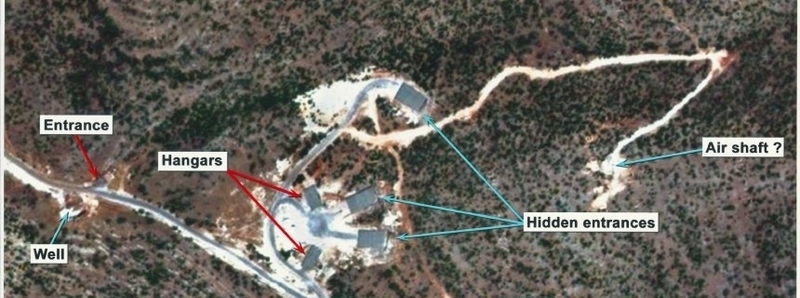The pilots returned to base without incident and Operation Orchard was brought to a successful conclusion. In Jerusalem, then-Prime Minister Ehud Olmert and his closest advisors were in a self-congratulatory mood, convinced as they were that Syrian President Bashar al-Assad was seeking to build a nuclear weapon and that Kibar was the almost-completed facility where that construction was to take place. They believed that their dangerous operation had saved the world from immense harm.
But they also wanted to prevent the situation from escalating, which is why they didn't even inform the US of their plan prior to the bombing run. Olmert only called Washington once the operation had been completed. Orchard was also to remain secret in Israel so as to avoid anything that smacked of triumphalism. Nor did they want it to become known that North Korean nuclear experts had been spotted in Deir-ez-Zor helping out with the construction of the reactor. They hoped to provide Assad an opportunity to play down the incident and to abstain from revenge attacks.
And that is in fact what happened. Assad complained about the violation of Syrian airspace and the bombing of a "warehouse," but the official version also claimed that the Syrian air force chased away the attackers. The public at the time did not learn what had really taken place.
Now, secret information obtained by SPIEGEL indicates that the world is once again being misled by Assad. Syria's dictator has not given up his dream of an atomic weapon and has apparently built a new nuclear facility at a secret location. It is an extremely unsettling piece of news.
Suspicious Uranium Particles
Back in 2007, it proved impossible to completely quell rumors about the mysterious building complex in the desert and its possible military purpose. In contrast to Israel and Pakistan, Syria is a signatory to the Treaty on the Non-Proliferation of Nuclear Weapons and is thus committed to using nuclear power only for peaceful purposes. And the International Atomic Energy Agency in Vienna demanded access to the site. In June 2008, Assad finally gave in to the IAEA's pressure and experts under the leadership of Olli Heinonen, a native of Finland, were allowed to inspect the destroyed Kibar facility. READ MORE…


